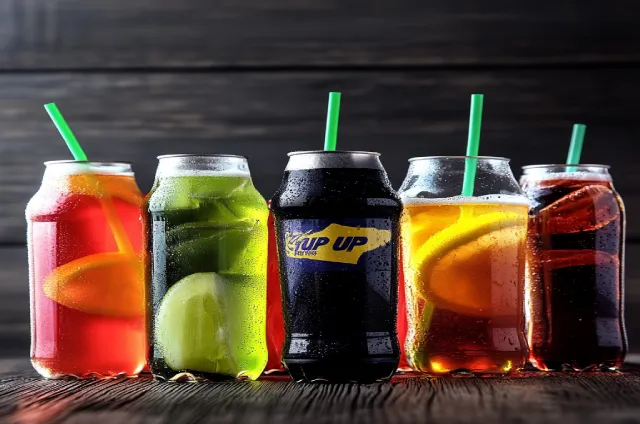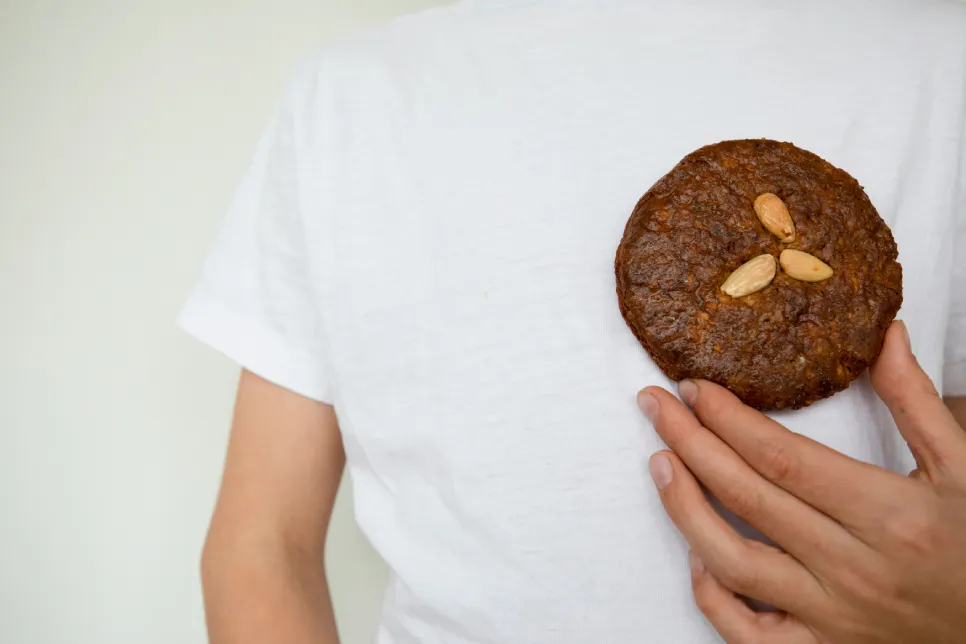We’ve all been there – dragging ourselves to the gym after a long day, feeling more like a nap than a deadlift. Your motivation is there, but your energy? Nowhere to be found. This is where pre-workout energy drinks enter the fitness scene, promising to transform that sluggish feeling into explosive workout energy. Surprisingly, a study in the Journal of the International Society of Sports Nutrition found that athletes using pre-workout supplements increased their performance by up to 8% compared to those who didn’t – that’s the difference between a personal record and just another workout.
Table of Contents
What Are Pre-Workout Energy Drinks?
Pre-workout energy drinks are specialized beverages designed to be consumed 20-30 minutes before exercise. Unlike regular energy drinks that simply provide a caffeine jolt, pre-workout formulations contain specific ingredients targeted at enhancing athletic performance, increasing energy and focus, delaying fatigue, and improving strength and endurance.
These drinks typically come in powder form to be mixed with water, though ready-to-drink options are increasingly available. What sets them apart from your standard energy drink is their comprehensive approach – they’re not just about caffeine, but rather a strategic blend of ingredients working together to optimize your workout from multiple angles.
The Science Behind the Surge
What makes these drinks work? It’s all about the carefully selected ingredients that target different aspects of performance:
Caffeine: The star player in most pre-workout formulas, caffeine blocks adenosine receptors in your brain, reducing fatigue and increasing alertness. Research from the International Journal of Sport Nutrition and Exercise Metabolism shows that 3-6 mg of caffeine per kilogram of body weight can improve exercise performance by up to 12%.
Beta-Alanine: This amino acid helps produce carnosine, which buffers acid in muscles during high-intensity exercise. That tingling sensation (called paresthesia) you might feel after taking pre-workout? That’s beta-alanine at work.
Citrulline Malate: By increasing nitric oxide production, citrulline malate enhances blood flow to working muscles, improving nutrient delivery and waste removal. A 2010 study found participants could perform 53% more repetitions when supplementing with citrulline malate.
Creatine: Perhaps the most studied supplement in sports nutrition, creatine increases phosphocreatine stores in muscles, which helps rapidly produce energy during high-intensity exercise. This translates to greater strength and power output.
BCAAs (Branched-Chain Amino Acids): Leucine, isoleucine, and valine are essential amino acids that reduce exercise-induced muscle damage and promote synthesis of muscle protein.
Homemade vs. Commercial Pre-Workout Drinks: DIY Power
While commercial pre-workout drinks offer convenience and precisely measured ingredients, homemade alternatives provide control over exactly what goes into your body and can be significantly more cost-effective.
The Commercial Route
Pros :
- Precisely dosed ingredients
- Convenient ready-to-mix formulas
- Researched combinations for synergistic effects
- Variety of flavors
Cons:
- Often contain artificial colors, flavors, and sweetened
- Can be expensive ($1-3 per serving)
- Many include proprietary blends that mask exact amounts of ingredients
The DIY Approach
Pros
- Complete control over ingredients
- Cost-effective in the long run
- Can adjust based on personal tolerance
- No artificial additives needed
Cons:
- Requires upfront investment in individual ingredients
- More time-consuming to prepare
- Challenging to get precise measurements
Quick DIY Pre-Workout Recipe
Try this simple homemade pre-workout mix:
- 1 cup cold brewed coffee (natural caffeine source)
- 1 tablespoon honey (quick carbohydrates)
- Juice of half a lemon (alkalizing effect)
- Pinch of sea salt (electrolytes)
- Optional: 3g creatine monohydrate (if available)
Simply mix and consume 20-30 minutes before your workout for a natural energy boost without additives
Choosing the Right Pre-Workout for Your Fitness Goals
Not all pre-workout drinks are created equal, and your specific fitness goals should guide your selection:
For Endurance Athletes
Look for formulas containing:
- Lower caffeine levels (100-150mg)
- Electrolytes for hydration
- Beta-alanine for muscular endurance
- BCAAs to prevent muscle breakdown during long sessions
- Carbohydrates for sustained energy
For Strength and Power Training
Prioritize ingredients like:
- Creatine (3-5g)
- Moderate-to-high caffeine (200-300mg)
- Citrulline malate for increased blood flow
- Beta-alanine for power output
- L-tyrosine for focus
For HIIT and Interval Training
Seek out formulas featuring:
- Moderate caffeine (150-200mg)
- Beta-alanine
- Citrulline malate
- B vitamins for energy metabolism
- No heavy sugar content that might cause crashes
For General Fitness
Look for:
- Lower stimulant content (under 150mg caffeine)
- Basic performance enhancers (small amounts of beta-alanine, BCAAs)
- No proprietary blends
- Minimal artificial ingredients
Label-Reading 101: Making Informed Choices
When selecting a pre-workout energy drink, being label-savvy is essential:
- Check the caffeine content first: Know your tolerance. Beginners should start with products containing less than 150mg per serving.
- Beware of proprietary blends: These mask the exact amounts of each ingredient. Look for products that disclose specific dosages.
- Watch for artificial ingredients: Many pre-workouts contain artificial colors (Yellow #5, Red #40), artificial sweeteners (sucralose, acesulfame potassium), and fillers.
- Verify key ingredients: Effective pre-workouts should contain clinical doses of proven ingredients (e.g., 3-5g of creatine, 3-6g of citrulline malate).
- Consider third-party testing: Some supplements are verified by organizations like NSF or Informed Choice, ensuring they contain what they claim and are free of banned substances.
The Dark Side: Potential Drawbacks and Precautions
While pre-workout energy drinks can enhance performance, they’re not without potential downsides:
Common Side Effects
- Jitters and anxiety: Too much caffeine can trigger nervousness, especially in sensitive individuals
- Digestive distress: Some ingredients like sodium bicarbonate or magnesium can cause GI upset
- Insomnia: Taking pre-workout too late in the day can interfere with sleep
- Paresthesia: The harmless but sometimes uncomfortable tingling from beta-alanine
- Headaches: Can occur from vasodilators or caffeine withdrawal
- Increased heart rate and blood pressure: Particularly concerning for those with existing cardiovascular conditions
Important Precautions
- Start with half a serving to assess tolerance
- Avoid using pre-workout daily to prevent developing tolerance to caffeine
- Consult healthcare providers if you have heart conditions, high blood pressure, anxiety disorders, or are pregnant or breastfeeding
- Check medication interactions, especially with stimulants, blood thinners, or blood pressure medications
- Cycle off periodically (one week per month) to maintain sensitivity
Real Talk: A Personal Journey with Pre-Workout
When I first started using pre-workout drinks, I made the classic rookie mistake – taking a full scoop of a high-stimulant formula before an evening workout. The result? An amazing training session followed by staring at my ceiling until 3 AM. Through trial and error, I’ve learned that a moderate formula (about 150mg caffeine) taken only before my most demanding workouts gives me the performance edge without the downsides.
As fitness coach Mark Jackson told me recently, “The best pre-workout is the one that gives you enough energy to push harder without making your heart feel like it’s about to leap out of your chest. More isn’t always better – better is better.”

The Bottom Line: Finding Your Perfect Pre-Workout Balance
Pre-workout energy drinks can be valuable tools in your fitness arsenal when used strategically. The key is finding the right balance for your unique needs:
- Consider your training goals, stimulant tolerance, and workout timing
- Be willing to experiment with different products or homemade alternatives
- Listen to your body – if something doesn’t feel right, it probably isn’t
- Remember that no supplement can replace proper nutrition, hydration, and rest
- Use pre-workout selectively for challenging sessions, not as an everyday crutch
Ultimately, pre-workout drinks should enhance your training experience, not define it. The best approach is one that supports your long-term fitness journey while respecting your body’s signals and limitations.
What’s your go-to pre-workout strategy? Do you prefer commercial formulas, homemade concoctions, or just a strong cup of coffee? Share your favorite pre-workout experience in the comments below!




